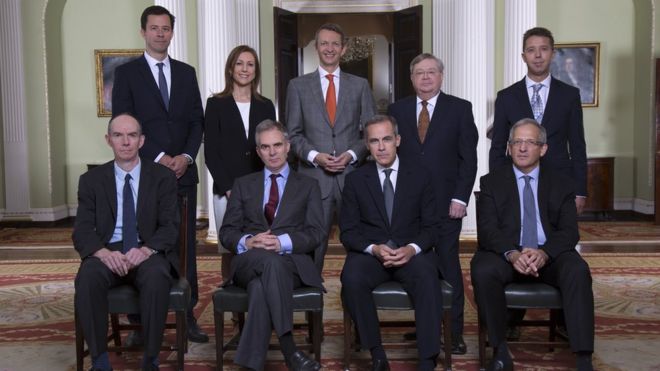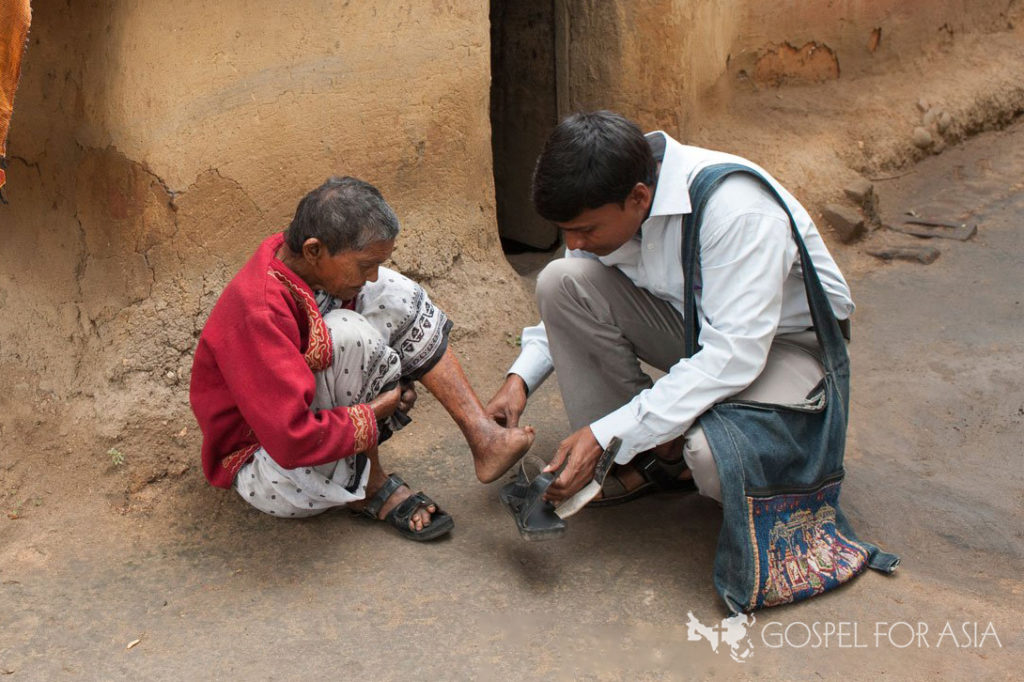WILLS POINT, TX — Gospel for Asia (GFA) Special Report on the aftermath of acute gender imbalance: Discussing the horrendous reality of 100 million missing women worldwide — Part 1.
One of the stunning stories from Scripture tells about the uninvited woman who crashed a VIP party at the home of an important religious leader. This is a gal whose bad reputation preceded her–a “woman of the city” reports the account in the book of Luke. Some versions even say that she “was a great sinner.”
Humph, thinks the very important dignitary whose party has been so rudely disrupted by this emotional female basket case. If he [Jesus] was a true prophet, he would know what kind of woman this is, for she is a great sinner.
This is a powerful story of male intervention, protection and advocacy, and in this case, it is Jesus who intervenes for a weeping woman, provides protection and clearly illustrates how to advocate for those wounded and longing for forgiveness.
“Simon,” Jesus asks, “Do you see this woman?”
Do you see this woman? What a question!
Do you see this woman? This is a question that needs to be asked regarding the astonishing demographic figure that is being forced upon our contemporary discussions regarding the status of women in the world today. Indeed, demographers are telling us that there are as many as 100 million women unaccounted for in the projections made by statisticians whose job it is to analyze and project the populations of the nations.
Simply stated, the devaluation of women and the often societally approved discrimination against them are creating a global crisis. This article examines this reality and seeks to propose that there are attitudes and actions we can all take to decrease and eventually eliminate this outrageous discrepancy. But first, we have to “see the women.”
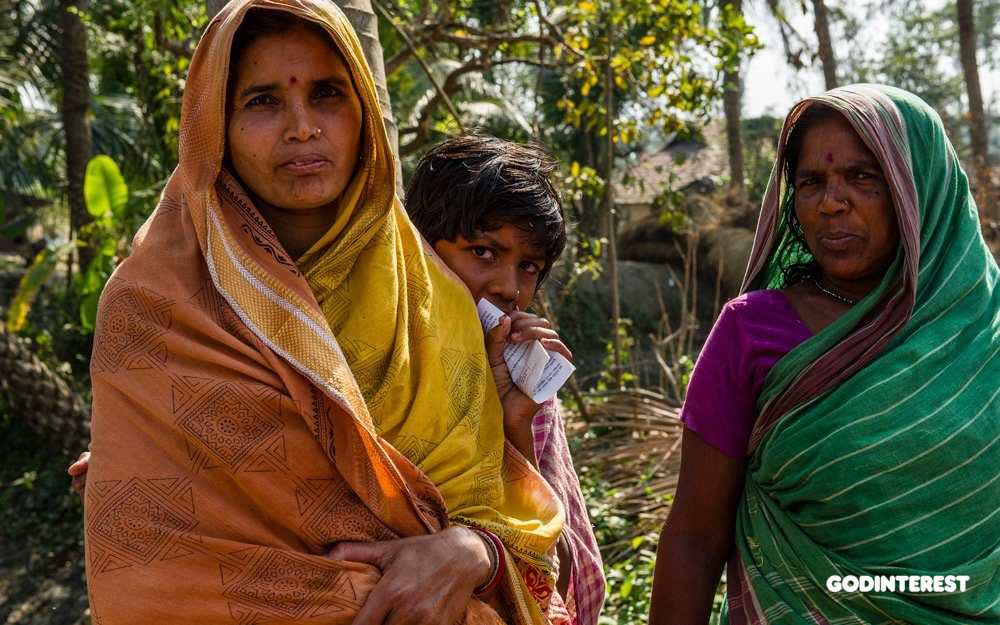 These village women are widows, and often endure threats and distress simply because of their social status as a “widow”.
These village women are widows, and often endure threats and distress simply because of their social status as a “widow”.
What Happened to the Missing Women?
My husband, David Mains, tells the story of being in Asia with Dr. KP Yohannan, the founder and director of Gospel for Asia. They were attending a conference with some 300 men in attendance in an open-air pavilion. Dr. K.P. was preaching on how these men treated their wives, saying something that memory recalls as being to the effect of, “You treat them like servants [by saying], ‘Do this; do that. Take care of me.’ You get angry and yell. Some of you even push them around. But you are not freeing them to be the women God created them to be.”
The power of this exhortation and of the Scriptures verifying his instruction manifested itself in a loud groaning that began to rise out of the group of men sitting on wooden pews.
“At first,” David remembers, “I thought it was a thunderstorm. I had never heard anything like it in my life. Then I realized these men were groaning in repentance and remorse.”
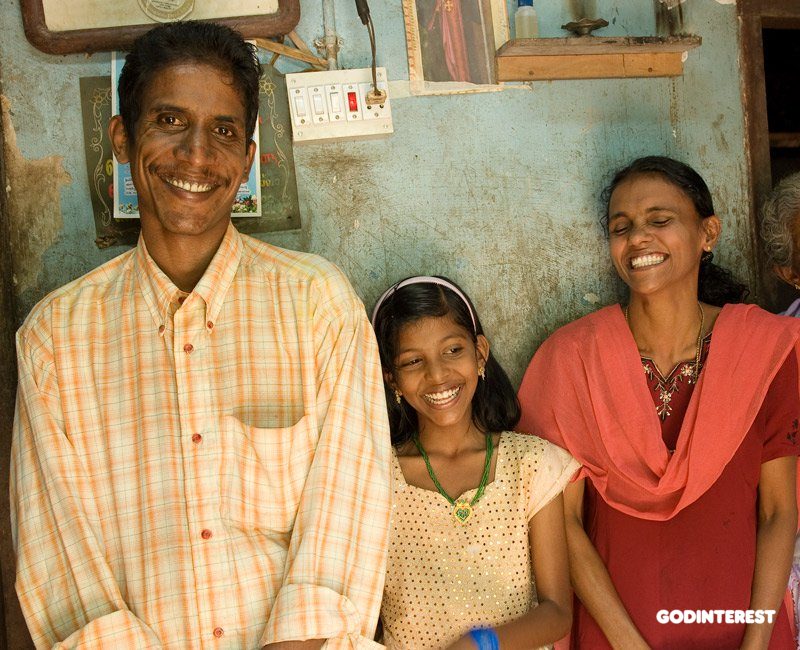 Here you see a family that has been transformed through the love of God. This man used to beat his wife and child, but after listening to KP Yohannan’s words through a GFA-supported radio broadcast, they found God’s love and are living happily in their journey with Christ.
Here you see a family that has been transformed through the love of God. This man used to beat his wife and child, but after listening to KP Yohannan’s words through a GFA-supported radio broadcast, they found God’s love and are living happily in their journey with Christ.
The devaluation of women in marriage, which those men repented of many years ago, is merely one symptom of what causes the 100-million-missing-women global crisis. If we choose to “see the women,” to study the plight of women worldwide and to pay attention to their distress, we will quickly conclude that women’s lives are threatened from the womb through widowhood.
Indeed, the whole world needs to be groaning in remorse and repentance when we realize that 100 million women who should be alive according to statisticians’ projections are nowhere to be found.
The reasons for this are varied and tragic. Even the numbers vary somewhat. In a 1990 essay published in The New York Review of Books, Nobel Prize-winning economist Amartya Sen claimed there were 100 million missing women. Through the following decade, Sen continued to expand his exploration and discoveries, which were published in many subsequent academic works.
Though estimates of between 90 and 101 million missing women, as well as the various causes for the phenomenon, have been studied, debated and analyzed by demographers and social scientists in the years since Sen’s original announcement, most agree now to the reality that roughly 100 million women, worldwide, are missing.
This number is determined by what is called the sex ratio–a means of measuring the number of males born in a society against the number of women. Generally, the male-female birth ratio is slightly biased toward the masculine sex. Due to some kind of disequilibrium matrix, nature allows for some 105 male births for every 100 female births, on average.
These numbers tell us, quietly, a terrible story of inequality and neglect leading to the excessive mortality of women.
Demographers propose that this is because men are at a higher risk of dying of a variety of causes–violence, accidents, injuries, war casualties–and in time, the sex ratio of a given population for any particular age set begins to equalize. Today, however, when what should be a normal equalized sex ratio is measured in many current populations, particularly in developing countries in Asia, as well as in the Middle East and in parts of Africa, results show a divergence from the norm.
The current sex ratio reveals not a ratio that is beginning to become even between the sexes, but an expanding ratio of men to women of 1.06 (1.06 men per 1 woman), which is far higher than in most countries.
Researcher Amartya Sen concludes: “These numbers tell us, quietly, a terrible story of inequality and neglect leading to the excessive mortality of women.”
Evaluating the Sex-Ratio Disequilibrium
It is here when those of us who care about the state of the world and the suffering and the well-being of the people who inhabit it should begin to groan, loudly and insistently, like a thunderstorm. We need to read the articles that disclose the state of women around the world; we need to do personal research. We need to seek for understanding.
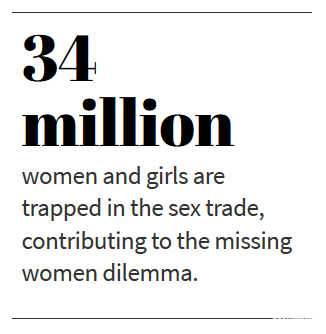 There is now a general consensus as to the reasons why sex ratios are teetering on a wild gender imbalance in various countries of the world. Sex-selective abortions, female infanticide, inadequate health care and nutrition for female offspring, lack of pregnancy and childbirth education, and the now booming sex-slave trade industry all contribute to the missing women dilemma.
There is now a general consensus as to the reasons why sex ratios are teetering on a wild gender imbalance in various countries of the world. Sex-selective abortions, female infanticide, inadequate health care and nutrition for female offspring, lack of pregnancy and childbirth education, and the now booming sex-slave trade industry all contribute to the missing women dilemma.
In their comprehensive book Half the Sky: Turning Oppression into Opportunity for Women Worldwide, Nicholas Kristof and Sheryl WuDunn report, “Far more women and girls are shipped into brothels each year in the early twenty-first century than African slaves were shipped into slave plantations each year in the eighteenth or nineteenth centuries.”
This horrendous reality is verified by the Foreign Affairs journal, and the above husband-and-wife writing team estimate some 34 million women and girls worldwide are trapped in the sex-slave trade.
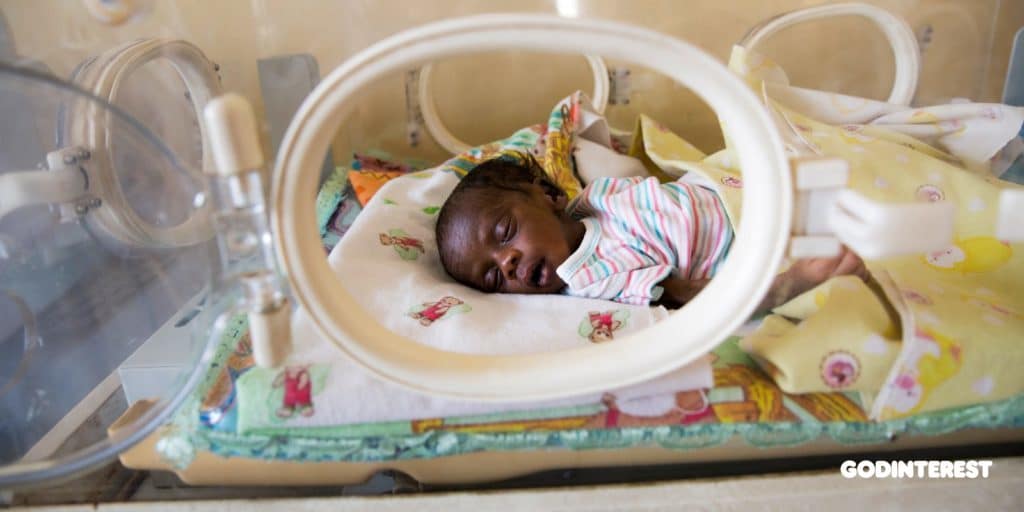 This newborn infant from South Sudan lies in an incubator, suffering from sepsis and jaundice and struggling to survive. His mother died giving birth. Photo by Mark Naftalin, UNICEF
This newborn infant from South Sudan lies in an incubator, suffering from sepsis and jaundice and struggling to survive. His mother died giving birth. Photo by Mark Naftalin, UNICEF
Maternal Mortality and Maternal Morbidity
The issue of malnourishment also takes a generational toll. When girls are malnourished–and historically, girls often live on subsistence diets while their brothers receive the family’s available food–they give birth to underweight babies whose bodies are then more susceptible to disease. Malnourished girls become malnourished women, prone to childbirth losses–miscarriages, stillbirths, infant deaths–and multiple pregnancy complications resulting in mortality.
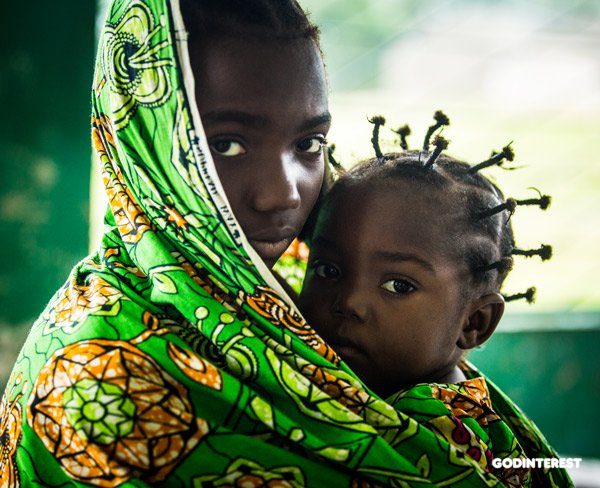 This young girl from the Democratic Republic of Congo brought her younger sister to a health center to have a malnutrition screening, after being driven from their home and community during a violent conflict between the government and anti-government militia. Photo by Vincent Tremeau, UNICEFIn India, for instance, demographers find that, by and large, the main cause of female deaths is cardiovascular disease–diseases of the heart and blood vessels that can lead to heart attacks or strokes. Medical researchers have discovered a close relationship between low birth weight and eventual cardiovascular diseases at a later age.
This young girl from the Democratic Republic of Congo brought her younger sister to a health center to have a malnutrition screening, after being driven from their home and community during a violent conflict between the government and anti-government militia. Photo by Vincent Tremeau, UNICEFIn India, for instance, demographers find that, by and large, the main cause of female deaths is cardiovascular disease–diseases of the heart and blood vessels that can lead to heart attacks or strokes. Medical researchers have discovered a close relationship between low birth weight and eventual cardiovascular diseases at a later age.
Maternal mortality refers to the number of women who die in childbirth. Some 99 percent of women in the world who die giving birth are from poor countries. This is determined by another ratio–the maternal mortality ratio (MMR), the number of maternal deaths for every 100,000 live births. The MMR measures the potential of death per pregnancy. Another ratio measures death probability over a lifetime of multiple pregnancies. The lifetime risk of dying in childbirth is 1,000 times higher in a poor country.
“This should be an international scandal,” Kristof and WuDunn write.
To sketch out this global crisis, Kristof and WuDunn quote some alarming statistics:
- The highest maternal mortality risk in the world is in the African country of Niger.
There the lifetime risk of death is 1 in 7.
- In sub-Saharan Africa, the lifetime risk of death in childbirth is 1 in 22.
- India is 1 in 70.
- The United States is 1 in 4,800, a high ratio for a developed and wealthy country.
- In Italy, the lifetime risk is 1 in 26,000.
- In Ireland, the chance of dying in childbirth is 1 in 46,000.
Morbidity is different from mortality. Maternal morbidity deals with injuries during childbirth, and they occur even more frequently than maternal mortality. Again, Half the Sky concentrates pages on occurrence of morbidity, particularly fistulas–in this case, rectovaginal fistulas, which are often the result of trauma in childbirth. Here a tear between the vagina and rectum (also caused by rape) is left untreated in places where there is inadequate health care. These women, many now mothers, having successfully delivered an infant, become outcasts in their villages because they cannot control the flow of urine or feces.
“For every woman who dies in childbirth, at least ten suffer significant injuries such as fistulas or serious tearing,” Kristof and WuDunn write. “Unsafe abortions cause the deaths of seventy thousand women annually and cause serious injuries to another 5 million. The economic cost of caring for those 5 million women is estimated to be $750 million annually. And there is evidence that when a woman dies in childbirth, her surviving children are much more likely to die young as well, because they will have no mother caring for them.”
The lifetime risk of dying in childbirth is 1,000 times higher in a poor country.
All these factors are symptoms of one major toxic cause: female discrimination. Simply stated: Women in a cross section of wide-ranging cultures are not valued. In fact, they are actively abused, neglected and abandoned through countless ingrained cultural practices that deem women as inferior to men and ensure they stay in subsistence-like conditions.
The conglomerate of all these causes contributes to the overall demographic reality of 100 million missing women. To repeat Amartya Sen again: “These numbers tell us, quietly, a terrible story of inequality and neglect leading to the excessive mortality of women.”
The Irony of the Skewed Sex Ratio
The irony of the missing-women demographics–enabled by entrenched cultural attitudes and systemic discrimination against the female sex–is that many places in the world with a skewed sex ratio are now experiencing such high female shortages that there are no longer enough women to mate in marriage with the existing male population. Think about that 1.06:1 sex ratio (again, 1.06 men to every 1 woman), and multiply it by the thousands. Imagine what that means. Imagine the implications.
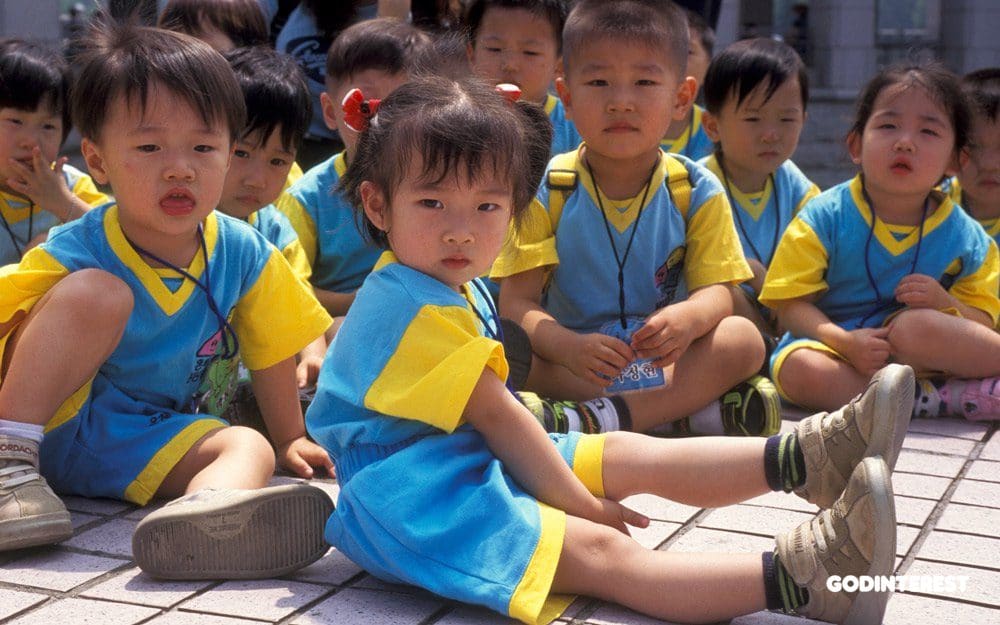 This photo is just one depiction of a once-looming human rights catastrophe. Because of the skewed sex ratio in Asia, many countries are now experiencing such high female shortages that there are no longer enough women to mate in marriage with the existing male population. In 1990, a cultural preference for male children had caused South Korea’s sex ratio to be at the world’s highest, but after campaigns and restrictions on ultrasounds, the ratio is back to normal.
This photo is just one depiction of a once-looming human rights catastrophe. Because of the skewed sex ratio in Asia, many countries are now experiencing such high female shortages that there are no longer enough women to mate in marriage with the existing male population. In 1990, a cultural preference for male children had caused South Korea’s sex ratio to be at the world’s highest, but after campaigns and restrictions on ultrasounds, the ratio is back to normal.
The Wall Street Journal focused an article on this topic that dealt with South Korea:
“A cultural preference for male children has cost Asia dearly. ”¦ Not just a human-rights catastrophe, it is also a looming demographic disaster. With Asian birthrates already plummeting, that means millions of women will never be mothers, and the economic and social impact on some of the world’s largest countries is incalculable.
“For decades, South Korea was Exhibit A in this depressing trend. By 1990, as medical advances made prenatal sex selection routine, the ratio of male-to-female babies soared in South Korea to the world’s highest, at 116.5 males for every 100 females.”
Projections made by the Population Council, a New York City-based research center, indicate that if trends continue, there will be an increase to 150 million missing women by 2035. The world is just sensing the demographic wave that was set into motion years ago. This means that in China, by 2035 there will be as many as 186 single men for every 100 women. In India, by 2060 the sex ratio could curve even higher: 191 men for every 100 women.
A cultural preference for male children [is] not just human-rights catastrophe, it is also a looming demographic disaster.
The governments of both countries have established means and laws to correct this extraordinary deviation. Fetal ultrasound imaging has been restricted (at the least, the reporting of the sex of the child while in utero), and legislation aimed at gender equality, to address gender imbalance has been enacted. China even offers financial incentives to couples with daughters and announced it was abandoning its one-child policy. But demographers warn that even if both countries brought their sex ratios to normal, the damage has been done. Hundreds of millions of Asian men in their 50s will still be unmarried in 2070. In India, the result would be around 15 percent.
Can this rampant and damaging sexism be altered? Remember South Korea, once Exhibit A? Now, partly because of the political insistence of a growing body of educated women, it is beginning to reduce its sex ratio through a variety of national policies. By 2005, the ratio had become 110 males for every 100 female babies. Five years later, the ratio became 107, finally normalizing at the natural level of 105.
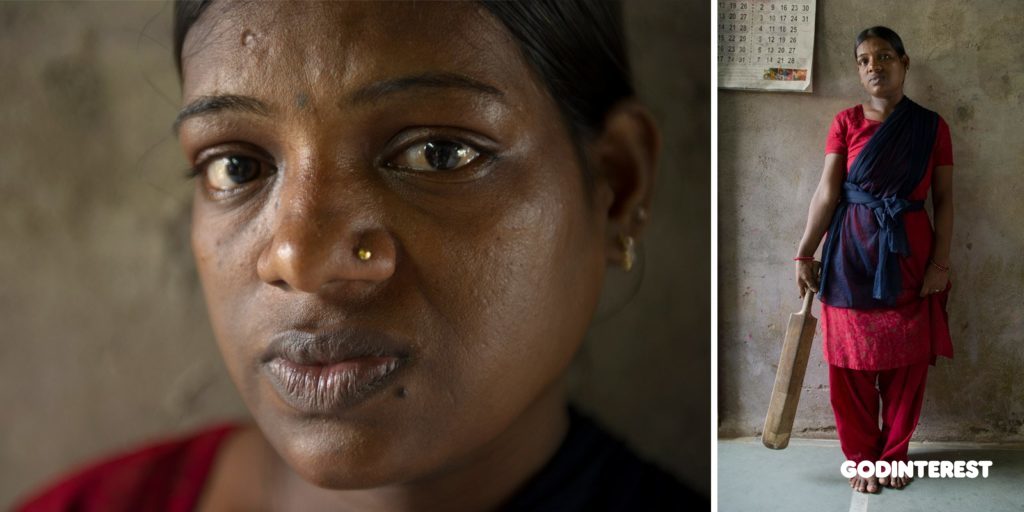 Geeta’s husband used to come home drunk and beat her with the wooden cricket bat pictured. Violence against women is a major public health problem in Asia and a violation of women’s human rights. The majority of this violence is intimate-partner violence, estimated to be 30 percent worldwide.
Geeta’s husband used to come home drunk and beat her with the wooden cricket bat pictured. Violence against women is a major public health problem in Asia and a violation of women’s human rights. The majority of this violence is intimate-partner violence, estimated to be 30 percent worldwide.
Intimate-Partner Violence Against Women
One of the greatest contributors to this missing-women factor is violence against women–both sexual violence and violence by their own intimate partners. According to the World Health Organization, “Violence against women–particularly intimate partner violence and sexual violence–is a major public health problem and a violation of women’s human rights.”
- Global estimates indicate that about 1 in 3 women worldwide (35 percent) have been victims of physical and/or sexual violence, sometimes inflicted by their own intimate partners, in their lifetimes.
- “As many as 38 percent of murders of women are committed by a male intimate partner.”
- “Violence can negatively affect women’s physical, mental, sexual and reproductive health, and may increase the risk of acquiring HIV in some settings.”
- “Men are more likely to perpetrate violence if they have low education, a history of child mistreatment, exposure to domestic violence against their mothers, harmful use of alcohol, gender imbalance norms including attitudes accepting of violence, and a sense of entitlement over women.”
A conclusion about the above data is, obviously, that intimate-partner violence is an undeniable contributor to the missing-women dilemma. In case there is any doubt as to what exactly is meant by all this, the United Nations defines violence against women as “any act of gender-based violence that results in, or is likely to result in, physical, sexual or psychological harm or suffering to women, including threats of such acts, coercion or arbitrary deprivation of liberty, whether occurring in public or in private life.”
The Coequal Value Seen in Genesis
The extraordinary message of the Christian Scriptures, beginning with the first book of the Old Testament, Genesis, affirms the value of men and women: “So God created man in His own image, in the image of God He created him; male and female He created them.”
Biblically faithful Christianity has always been confronted by this theological premise: Man and woman are created in the image of God. It’s a huge bump in the road for those who might mistreat the female sector within its following and is a premise worthy of the moans and groans of those who hear a sermon pointing out their misconduct. How we treat one another, in Christendom, is evidence of the reality and depth of our faith.
100 Million Missing Women & the Aftermath of Acute Gender Imbalance: Part 2
Learn more about Gospel for Asia’s programs to combat the Missing Women reality by helping women through Vocational Training, Sewing Machines and Literacy Training.
This Special Report article originally appeared on GFA.org.
Go here to know more about Gospel for Asia: Facebook | Sourcewatch | Integrity | Flickr | GFA | Lawsuit









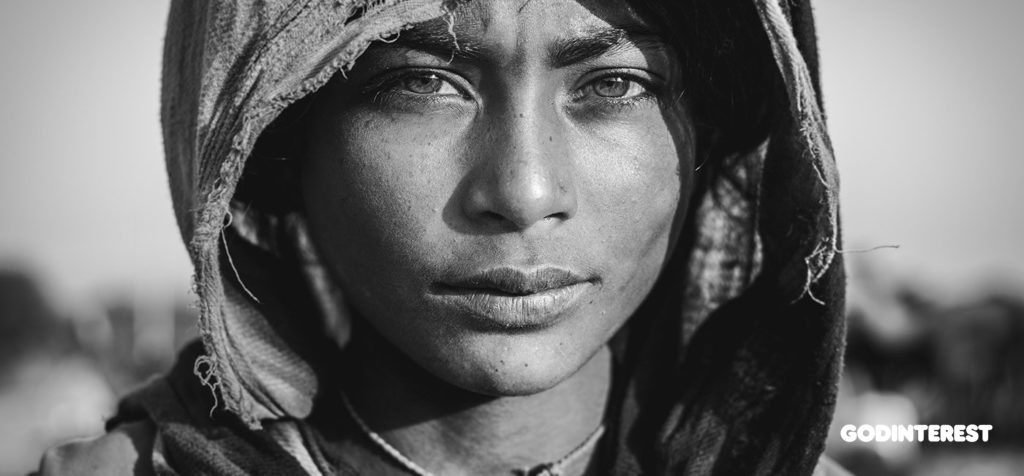


 There is now a general consensus as to the reasons why sex ratios are teetering on a wild gender imbalance in various countries of the world. Sex-selective abortions, female infanticide, inadequate health care and nutrition for female offspring, lack of pregnancy and childbirth education, and the now booming sex-slave trade industry all contribute to the missing women dilemma.
There is now a general consensus as to the reasons why sex ratios are teetering on a wild gender imbalance in various countries of the world. Sex-selective abortions, female infanticide, inadequate health care and nutrition for female offspring, lack of pregnancy and childbirth education, and the now booming sex-slave trade industry all contribute to the missing women dilemma.





